Apr 2, 2024 12:59 PM
Saxophonist, Sonic Explorer Casey Benjamin Dies at 45
Casey Benjamin, the alto saxophonist, vocalist, keyboardist and producer who stamped his distinctive sounds on the…
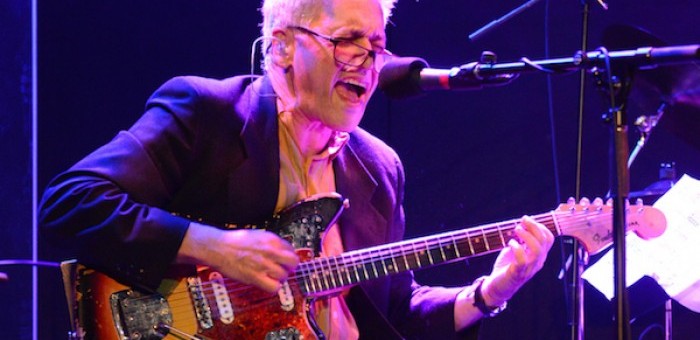
Marc Ribot performs at the Newport Jazz Festival on July 30 in Newport, Rhode Island, leading his band The Young Philadelphians.
(Photo: Adam McCullough)Fresh off a European tour, guitarist Marc Ribot brought his latest project, The Young Philadelphians, to the banks of Narragansett Bay for a sizzling afternoon set at the 62nd edition of the Newport Jazz Festival on July 30.
Filtering Philadelphia soul classics and other ’70s dance anthems through his own deconstructionist lens, Ribot and his crew—which featured the harmolodic rhythm tandem of former members of Ornette Coleman’s Prime Time, bassist Jamaaladeen Tacuma and drummer G. Calvin Weston—simultaneously shocked and charmed the Harbor Stage crowd with edgy renditions of upbeat dance tunes like “T.S.O.P.” (aka the Soul Train theme) and The Trammps’ “Love Epidemic.”
Ribot’s slogan for the band—“Where Deco Meets Disco Meets Decon”—refers to the group’s subversive modus operandi. The music has evolved considerably since the band’s July 2014 performance at Tokyo’s Club Quattro (documented on the recently released Live In Tokyo on Yellowbird-Enja). While remaining faithful to these familiar melodies, particularly in the three-piece string section which plays direct transcriptions of the original recordings, Ribot has begun to incorporate more Butch Morris-styled conduction cues into the mix, resulting in some unexpected and entirely avant-garde interludes.
These kinds of detours into musical abstraction can be off-putting to festivalgoers, many of whom are casual jazz fans unaccustomed to such difficult listening. But Ribot made sure to keep his band well within bounds, snapping back to memorable melodies and percolating grooves before venturing too far “outside.”
One of the surprises of the set was the absence of guitarist Mary Halvorson, who had played on the album and was a regular in The Young Philadelphians’ lineup. She recently left the group to embark on a solo tour (she appeared solo later that same afternoon in Newport at the intimate Storyville venue) and was replaced by Chris Cochrane, a Brooklyn-based guitarist-improviser-noisemaker and veteran on the downtown scene.
The string section, which shifts from tour to tour, was comprised of violinist Amy Bateman, violist Joanna Mattrey and cellist Jeremy Harman.
The band opened its Harbor Stage set with the anthemic “T.S.O.P. (The Sound Of Philadelphia),” playing a balladic overture before launching into the familiar, infectious disco groove, handled with funky aplomb by the locked-in team of Tacuma and Weston.
As the piece progressed, Ribot employed various conduction cues, signaling the guitars and bass to drop out in order to let the strings and drums jam freely. On a downbeat, the ensemble shifted to a waltz with a free drum pulse underneath. On a new downbeat, the strings jammed with Cochrane’s hellacious skronking.
Ribot’s bluesy solo on this number became increasingly abstract as he drifted stylistically from blues slinger Buddy Guy to avant-garde strummer Derek Bailey. At one point, Ribot had the band drop out and cued the strings to play a dissonant, Stravinsky-esque interlude. Grabbing the mic, he snarled, “It’s time to get down!”
A rendition of The People’s Choice’s 1975 hit “Do It Any Way You Wanna” had a breakdown with Tacuma playing a fleet-fingered, crowd-pleasing bass solo backed by Ribot’s wah-wah-inflected comping. The funky piece built to a powerful crescendo with the strings sawing away frantically before the band dropped out for a fiery, polyrhythmic drum solo by Weston that showcased his Billy Cobham-esque command of the kit.
On an instrumental version of the soulful Teddy Pendergrass ballad “Love TKO,” Ribot displayed some impressive octaves and chord melody work before launching into some blues-tinged fusillades on his Fender Jaguar guitar, tipping into Sonny Sharrock territory.
As the string section played the famous riff from “Fly, Robin, Fly”—a hit for the Munich-based ’70s band The Silver Convention—some fans under the packed Harbor Stage tent broke out their John Travolta-style Saturday Night Fever moves while Cochrane unleashed some nasty, raucous licks.
Ribot’s original tune “The Cocktail Party,” which appeared on his 1990 debut, Rootless Cosmopolitans, had the strings playing tightly synchronized Monkian lines while guitars, bass and drums put up an urgent punk-funk vibe. They closed with Ribot talk-singing his way through The Trammps’ disco opus, “Love Epidemic.”
Far more dissonant, edgy and full of abstraction than the Live In Tokyo album, this Newport set drew a standing ovation from the excitable crowd, proving, as Coleman did with his Prime Time band, that “outside” music can be easily digested by the uninitiated—if it’s danceable.
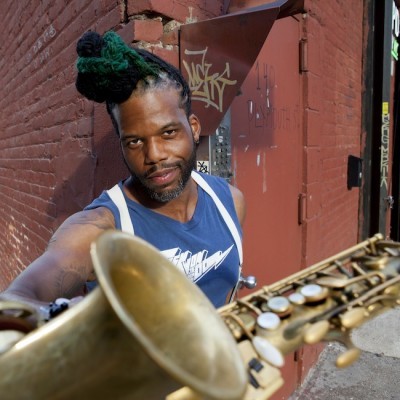
Benjamin possessed a fluid, round sound on the alto saxophone, and he was often most recognizable by the layers of electronic effects that he put onto the instrument.
Apr 2, 2024 12:59 PM
Casey Benjamin, the alto saxophonist, vocalist, keyboardist and producer who stamped his distinctive sounds on the…
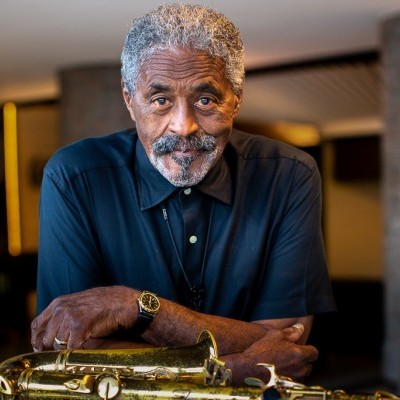
“He’s constructing intelligent musical sentences that connect seamlessly, which is the most important part of linear playing,” Charles McPherson said of alto saxophonist Sonny Red.
Feb 27, 2024 1:40 PM
“I might not have felt this way 30 to 40 years ago, but I’ve reached a point where I can hear value in what people…
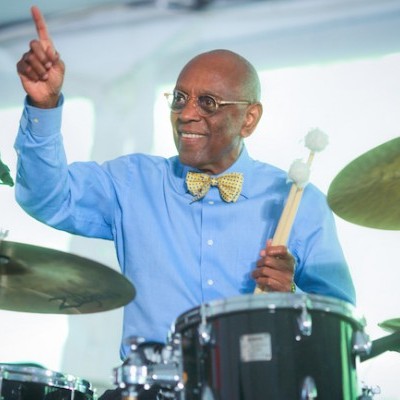
Albert “Tootie” Heath (1935–2024) followed in the tradition of drummer Kenny Clarke, his idol.
Apr 5, 2024 10:28 AM
Albert “Tootie” Heath, a drummer of impeccable taste and time who was the youngest of three jazz-legend brothers…
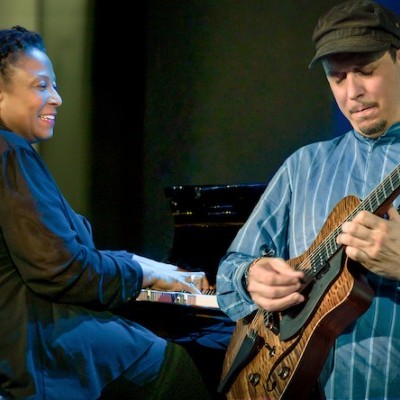
“Both of us are quite grounded in the craft, the tradition and the harmonic sense,” Rosenwinkel said of his experience playing with Allen. “Yet I felt we shared something mystical as well.”
Mar 12, 2024 11:42 AM
“There are a few musicians you hear where, as somebody once said, the molecules in the room change. Geri was one of…
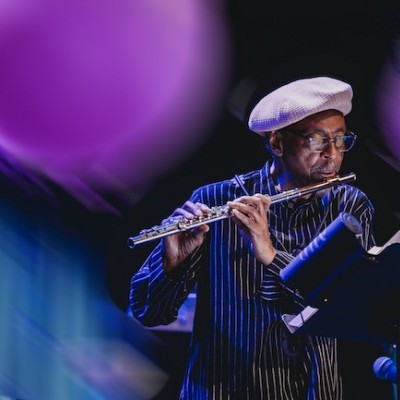
Henry Threadgill performs with Zooid at Big Ears in Knoxville, Tennessee.
Apr 9, 2024 11:30 AM
Big Ears, the annual four-day music celebration that first took place in 2009 in Knoxville, Tennessee, could well be…